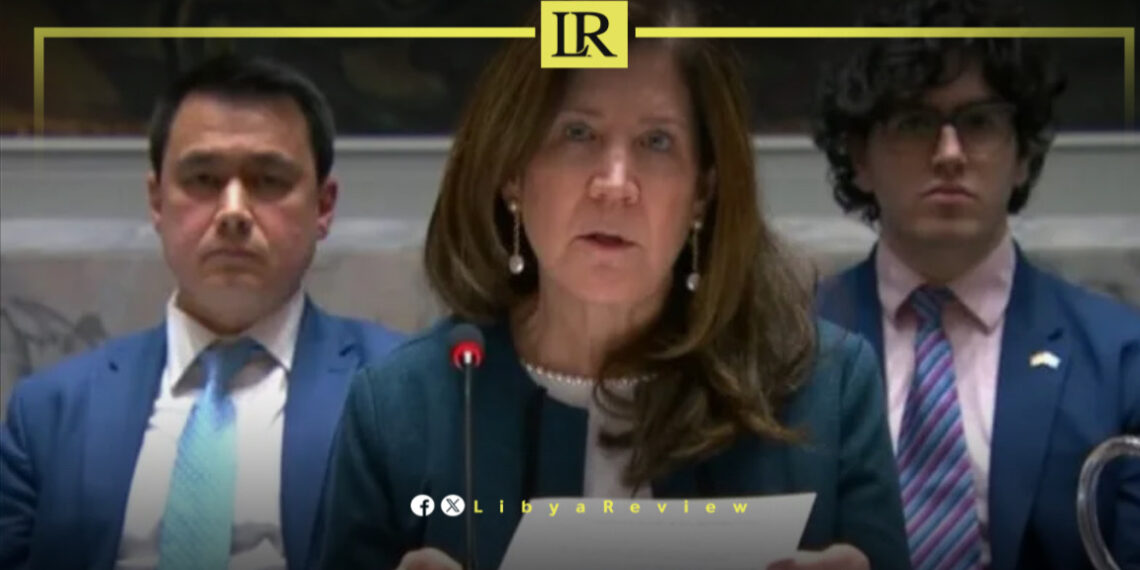The U.S. Acting Ambassador to the United Nations Dorothy Camille Shea emphasised that Libya’s resources belong to all its people, not just the few who can lay their hands on them.
Shea added, “We applaud the updated sanctioning criteria set by the UN Security Council for individuals and entities destabilizing Libya through illegitimate exploitation and oil exportation.”
The US diplomate said that fuel smuggling results in a massive transfer of wealth out of Libya. This theft and corruption must be addressed for the Libyan people’s well-being.
She pointed out that protecting Libya’s sovereignty and territorial integrity is crucial through the broader reunification of Libyan institutions via security integration between the East and West, now permitted following last month’s modification of the arms embargo by the Council.
Shea noted that political solution is the path to long-term stability in Libya. Time is of the essence in the UN-led efforts to counter destabilizing activities by external actors.
Libya has been in chaos since a NATO-backed uprising toppled longtime leader Muammar Gaddafi in 2011. The county has for years been split between rival administrations.
Libya’s economy, heavily reliant on oil, has suffered due to the ongoing conflict. The instability has led to fluctuations in oil production and prices, impacting the global oil market and Libya’s economy.
The conflict has led to a significant humanitarian crisis in Libya, with thousands of people killed, and many more displaced. Migrants and refugees using Libya as a transit point to Europe have also faced dire conditions.
The planned elections for December 2021 were delayed due to disagreements over election laws and the eligibility of certain candidates. This delay has raised concerns about the feasibility of a peaceful political transition.
Despite the ceasefire, security remains a significant concern with sporadic fighting and the presence of mercenaries and foreign fighters. The unification of the military and the removal of foreign forces are crucial challenges.


